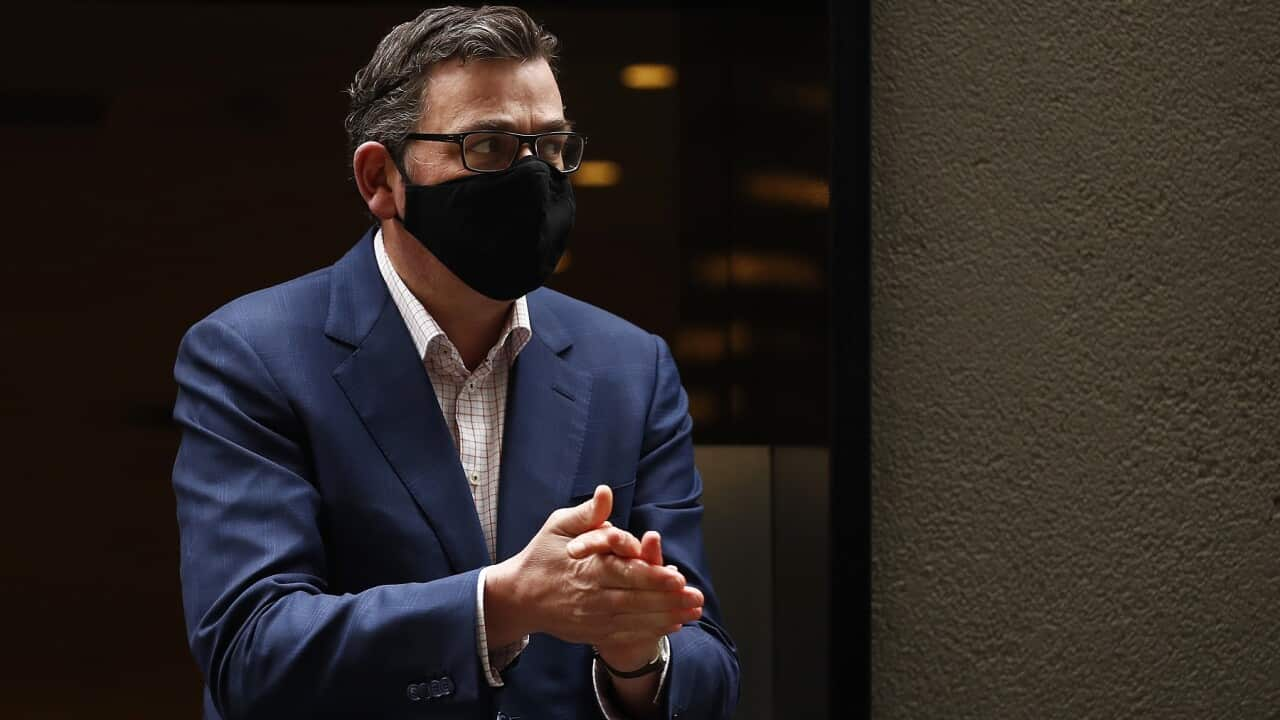Australia's unemployment rate has unexpectedly fallen to 6.8 per cent in August as another large jump in employment was reported with COVID-19 restrictions easing across most states.
The unemployment rate fell from a 22-year high of 7.5 per cent in July, but still stands well above the 5.1 per cent rate seen in February when the pandemic first hit Australia's shores.
The number of people unemployed fell below one million after rising to a record high in July, according to figures released by the Australian Bureau of Statistics on Thursday.
Treasurer Josh Frydenberg said 458,000 new jobs had been created over the last three months, with a particularly strong performance in NSW.
Of those jobs, 60 per cent had gone to women, and 40 per cent had gone to young people, he said.
But Mr Frydenberg recognised that despite the good news, many Australians were struggling.
"Despite this fall today ... many Australians are doing it tough. And the road to recovery will be long, it will be hard, and it will be bumpy," he said.
"The effective unemployment rate, which takes into account not just those who are on unemployed officially, but those who have left the labour force or seen their hours reduced to zero has fallen from 9.8 per cent to 9.3 per cent. But it still remains high."
The Reserve Bank and Treasury have both predicted the unemployment rate will rise to 10 per cent by the end of the year with a further 400,000 people joining the dole queue.
The number of people in employment rose 111,000, the third month of exceptionally strong increases as restrictions were unwound.
The number of full-time positions rose by 36,200, while part-time jobs increased by 74,800.
The participation rate of those people in work or seeking employment rose to 64.8 per cent from 64.7 per cent.
Economists' forecasts had centred on a fall of 35,000 jobs in the month with the unemployment rate ticking up to 7.7 per cent.
Virus support 'must be wound down'
Officials are predicting an increase in the number of JobSeeker recipients after the reduction of the JobKeeper scheme next week.
The subsidy scheme is being split in two, separating full-time from part-time workers. Some part-time workers will be able to apply for both JobKeeper and JobSeeker payments.
A new report by the McKell Institute has found cutting the payments will strip almost $10 billion from the economy before Christmas, but Prime Minister Scott Morrison insisted both JobSeeker and JobKeeper must be wound down.
"These things can't go off into the never never and they have to be wound down," he said on Thursday.
"We have to move on from them."
The institute found 1.05 million part-time workers would have their $1,500 fortnightly JobKeeper payments reduced to $750 from 29 September.
Another 2.4 million full-time workers would have their payments cut to $1,200.
The institute found the Commonwealth would spend $1.52 billion less on JobKeeper per fortnight than if the original rate remained, representing a $9.9 billion reduction in fiscal support by Christmas.
The OECD has released a separate report warning against "premature budgetary tightening" when economies are still fragile.
Shadow treasurer Jim Chalmers said it was too soon to wind back coronavirus supports. "During the deepest recession in almost a century and an escalating jobs crisis, it makes no sense for the Morrison government to be withdrawing support from the economy without a comprehensive jobs plan to replace it," he told AAP.
"During the deepest recession in almost a century and an escalating jobs crisis, it makes no sense for the Morrison government to be withdrawing support from the economy without a comprehensive jobs plan to replace it," he told AAP.

Jim Chalmers says the government must extend fiscal support. Source: AAP
Mr Morrison told reporters the "effective rate" of unemployment still remained well over 10 per cent and the government wanted to see that come down.
"We've made difficult but balanced decisions which means on health and jobs and the economy we are doing better than almost every other developed economy in the world," he said.
Even still, the Morrison government plans to slash pandemic-boosted JobSeeker benefits by $300 at the end of next week.
The payment is due to go back to the original Newstart allowance of $40 a day in December.
More than $12.3 billion has been spent on coronavirus supplements to help jobseekers and other welfare recipients cope with the fallout.
Deloitte Access Economics analysis commissioned by the Australian Council of Social Service has found cuts to the top-up payments will cost the economy $31 billion.
Deloitte also found 145,000 full-time jobs could be lost if JobSeeker is cut, fuelled by a plunge in consumer spending.
People in Australia must stay at least 1.5 metres away from others. Check your state’s restrictions on gathering limits.
If you are experiencing cold or flu symptoms, stay home and arrange a test by calling your doctor or contact the Coronavirus Health Information Hotline on 1800 020 080. News and information is available in 63 languages at




